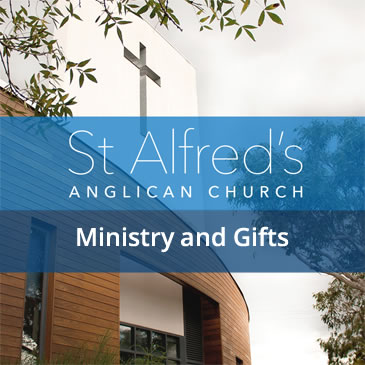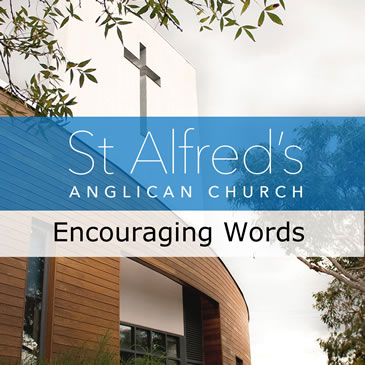
CELEBRATION
&
10:30 PM CAROLS
& COMMUNION
BY CANDLELIGHT
& COMMUNION
St Alfred's Blackburn North has two weekly Sunday services, 10am and 6pm.
Sunday 10am service has a children's program for prep to year 8. There is also a program for preschoolers.
Sunday 6pm service is for all ages, and has a more contemporary feel than the morning service.
Wednesday 10am service, once a month.
Click here to watch previous services
Welcome
Peter MacPherson, Senior Minister, welcomes you to St Alfred's.
St Alfred's is an Anglican Church in the evangelical tradition with a lively contemporary worship style and a great heart for mission.
Sermons
Listen to our latest Bible talks or browse through our recent sermon series.

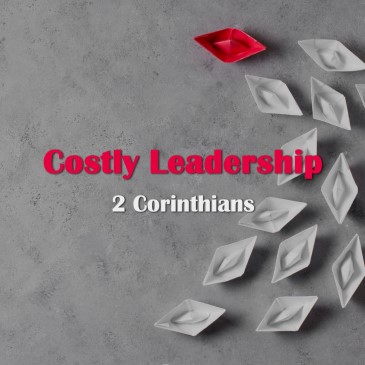
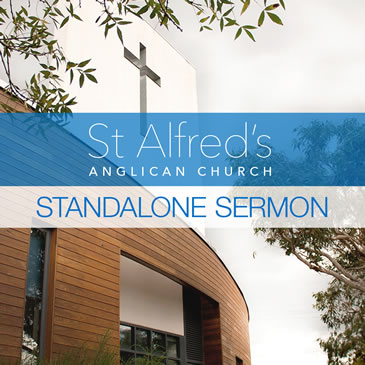 This sermon is not part of a Sermon Series and stands alone.
This sermon is not part of a Sermon Series and stands alone.
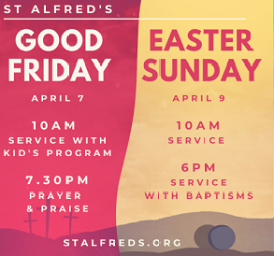



 From 28 Aug 2022 at all congregations we begin a ten-week series called “Creation and Humanity” looking at the early chapters of Genesis and some of the big issues that flow out of the doctrine of creation. These include science, evolution, creation care, and what it means to be human.
From 28 Aug 2022 at all congregations we begin a ten-week series called “Creation and Humanity” looking at the early chapters of Genesis and some of the big issues that flow out of the doctrine of creation. These include science, evolution, creation care, and what it means to be human.


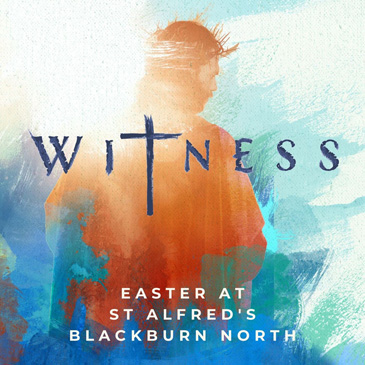



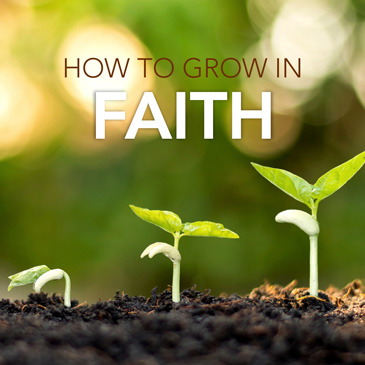
 On Sunday Aug 22 we will begin a new series in Esther with the apt series title, “Living in Challenging Times.” Why study Esther, you might ask? Here are some thoughts. When things are going well in our lives we are more likely to believe in God’s goodness and benevolence. We can see that God is looking after us. But what happens when life goes wrong, when the clouds roll in, when we feel vulnerable, insecure and threatened? At these times we search for God, pleading for Him to change our circumstances, wondering if he is really in control. All these existential and faith issues arise in Esther. Esther and all her people live under the dark shadow of persecution, threatened with genocide at the hands of the Persians. Strangely God does not appear in the story and yet a great deliverance occurs. Esther is a rescue story, a deliverance story. At the end there is a great celebration which the Jewish people to this day commemorate as the feast of Purim. God rescues his people, but not in an obvious way. His ways are hidden, somewhat mysterious. There are no prophets, angels, burning bushes or obvious miracles. And so we are left to wonder about God’s hidden work of providence, ordering human affairs to achieve his purposes, working quietly through the decisions that people make. Esther becomes the queen, raised to prominence “for such a time as this” (4:14), reminding us that God is still in charge no matter how bleak things look. There are many points of application as we live in our own challenging times, looking for God to rescue us from our struggles and looking for that ultimate rescue that only the Lord Jesus can provide. Esther’s world is full of danger, as is ours, but we are reminded that God is still there working for the good of his people. I am really looking forward to this new series. I think God will teach us a lot. I hope you and your Growth Group are really blessed and strengthened by it.
On Sunday Aug 22 we will begin a new series in Esther with the apt series title, “Living in Challenging Times.” Why study Esther, you might ask? Here are some thoughts. When things are going well in our lives we are more likely to believe in God’s goodness and benevolence. We can see that God is looking after us. But what happens when life goes wrong, when the clouds roll in, when we feel vulnerable, insecure and threatened? At these times we search for God, pleading for Him to change our circumstances, wondering if he is really in control. All these existential and faith issues arise in Esther. Esther and all her people live under the dark shadow of persecution, threatened with genocide at the hands of the Persians. Strangely God does not appear in the story and yet a great deliverance occurs. Esther is a rescue story, a deliverance story. At the end there is a great celebration which the Jewish people to this day commemorate as the feast of Purim. God rescues his people, but not in an obvious way. His ways are hidden, somewhat mysterious. There are no prophets, angels, burning bushes or obvious miracles. And so we are left to wonder about God’s hidden work of providence, ordering human affairs to achieve his purposes, working quietly through the decisions that people make. Esther becomes the queen, raised to prominence “for such a time as this” (4:14), reminding us that God is still in charge no matter how bleak things look. There are many points of application as we live in our own challenging times, looking for God to rescue us from our struggles and looking for that ultimate rescue that only the Lord Jesus can provide. Esther’s world is full of danger, as is ours, but we are reminded that God is still there working for the good of his people. I am really looking forward to this new series. I think God will teach us a lot. I hope you and your Growth Group are really blessed and strengthened by it. Jesus is Lord The Book of Acts
Jesus is Lord The Book of Acts




 Join us for this short, topical series reflecting on our present situation. Invite your family, friends, neighbours, work colleagues, mates. You never know who may be helped by this series. Topics are: Everything’s Changed But God is Still in Charge (July 26) Prayer and Lament (Aug 2) Why Would a Loving God Allow a Pandemic to Happen? (Aug 9) Crisis is an Opportunity for Spiritual Growth (Aug 16) Hope, Love and Good Works in a Time of Danger (Aug 23) This promises to be a thoughtful and helpful series as we reflect on some big theological, apologetic and pastoral issues. Peter MacPherson
Join us for this short, topical series reflecting on our present situation. Invite your family, friends, neighbours, work colleagues, mates. You never know who may be helped by this series. Topics are: Everything’s Changed But God is Still in Charge (July 26) Prayer and Lament (Aug 2) Why Would a Loving God Allow a Pandemic to Happen? (Aug 9) Crisis is an Opportunity for Spiritual Growth (Aug 16) Hope, Love and Good Works in a Time of Danger (Aug 23) This promises to be a thoughtful and helpful series as we reflect on some big theological, apologetic and pastoral issues. Peter MacPherson

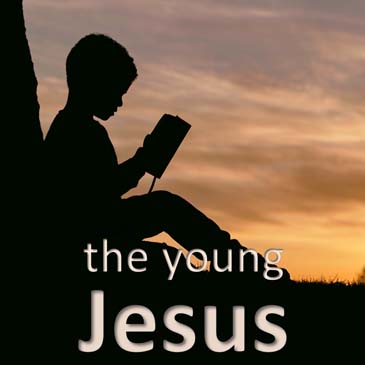
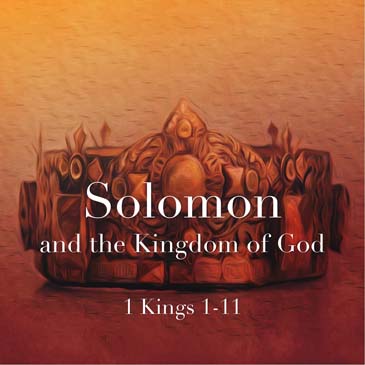




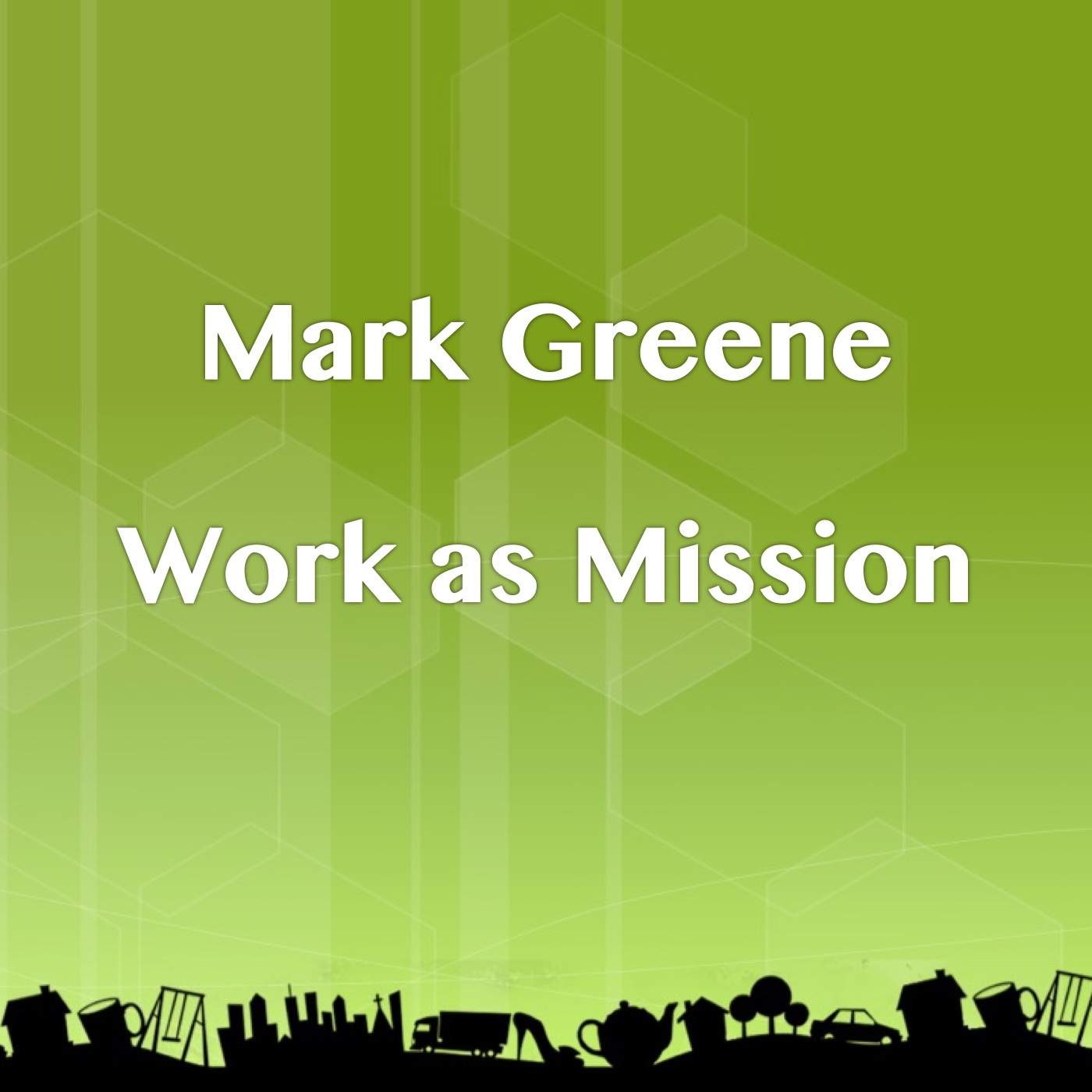
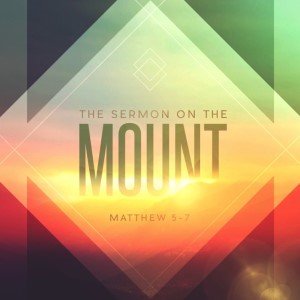







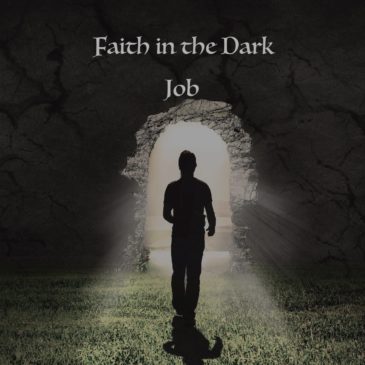
 1 Thessalonians gets to the heart of what it means to live for God and so we've called the series 'Living God's Way'. Paul is very realistic about what these Christians in Thessalonica are facing and he warmly commends them for their example and faithfulness in spite of the opposition and persecution they endure. They're called to remember the faithful, honest and servant-hearted ministry that Paul and Silas had among them. They're reminded to please God in living pure lives, loving each other and serving God faithfully in the light of Christ's promised return. It's a letter that speaks powerfully to Christians of every era, and never was there a time when we needed to heed its teaching more than we do today. Let's 'Live God's Way'.
1 Thessalonians gets to the heart of what it means to live for God and so we've called the series 'Living God's Way'. Paul is very realistic about what these Christians in Thessalonica are facing and he warmly commends them for their example and faithfulness in spite of the opposition and persecution they endure. They're called to remember the faithful, honest and servant-hearted ministry that Paul and Silas had among them. They're reminded to please God in living pure lives, loving each other and serving God faithfully in the light of Christ's promised return. It's a letter that speaks powerfully to Christians of every era, and never was there a time when we needed to heed its teaching more than we do today. Let's 'Live God's Way'. Work is a good gift from God. Yet many Christians struggle to see where God fits into their daily work lives. Whether it is paid or voluntary work, study or domestic duties, God is with us in whatever we are doing. But what does it look like. How do we connect our faith and work? This series has been stimulated by the book “God at Work: Live Each Day with Purpose” by Ken Costa.
Work is a good gift from God. Yet many Christians struggle to see where God fits into their daily work lives. Whether it is paid or voluntary work, study or domestic duties, God is with us in whatever we are doing. But what does it look like. How do we connect our faith and work? This series has been stimulated by the book “God at Work: Live Each Day with Purpose” by Ken Costa. TKC is a global prayer movement that invites Christians around the world to pray for more people to come to know Jesus.
TKC is a global prayer movement that invites Christians around the world to pray for more people to come to know Jesus.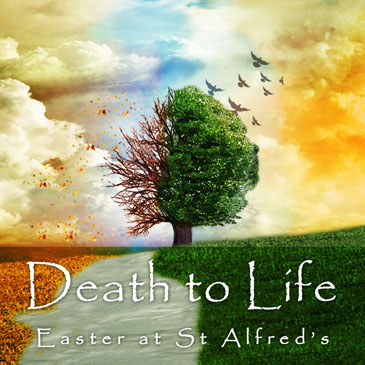
 John Chapters 7-10 are full of questions about Jesus, about us and about the meaning of life. Who is Jesus, where did he come from, is he mad, how does he do the things he does, is he the Messiah? What do you make of Jesus, where are you heading in life, are you willing to change, is Jesus the answer? These are some of the many challenging questions raised by this series.
John Chapters 7-10 are full of questions about Jesus, about us and about the meaning of life. Who is Jesus, where did he come from, is he mad, how does he do the things he does, is he the Messiah? What do you make of Jesus, where are you heading in life, are you willing to change, is Jesus the answer? These are some of the many challenging questions raised by this series. Is it important that people keep their promises to one another? Yes it is. Otherwise we wouldn't be able to trust one another. What about God? Does he keep his promises? Can we trust him? Join us this Advent and Christmas as we remember the greatest promise God ever made: to send his Son.
Is it important that people keep their promises to one another? Yes it is. Otherwise we wouldn't be able to trust one another. What about God? Does he keep his promises? Can we trust him? Join us this Advent and Christmas as we remember the greatest promise God ever made: to send his Son.
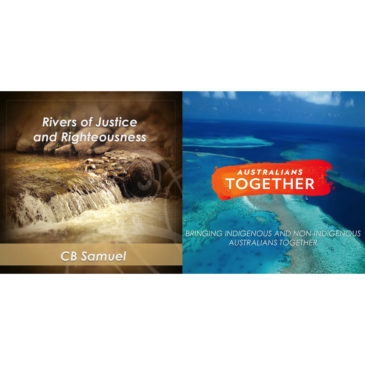 Join us at St Alfred's & St Luke's for a special focus on God’s justice - 2017. CB Samuel Global Justice. International speaker from India. Bible teacher, pastor, theologian, missiologist, and passionate advocate for the poor. Advisor for both EFICOR and Micah Global. Sun Oct 22: 10am & 6pm at St Alfred's. Andrew Naylor Justice for Indigenous Australians. Relationships Team Manager at Australians Together, responsible for helping churches respond to the disadvantages faced by indigenous Australians. Formerly music director at Stairway and City Life. Sun Oct 29: 10am, 4pm & 6pm at St Alfred's. Bob Mitchell Justice for the Poor. CEO of Anglican Overseas Aid. Author of Faith-Based Development: How Christian Organisations Can Make a Difference (2017). Sun Nov 12: 9.30am at St Luke's.
Join us at St Alfred's & St Luke's for a special focus on God’s justice - 2017. CB Samuel Global Justice. International speaker from India. Bible teacher, pastor, theologian, missiologist, and passionate advocate for the poor. Advisor for both EFICOR and Micah Global. Sun Oct 22: 10am & 6pm at St Alfred's. Andrew Naylor Justice for Indigenous Australians. Relationships Team Manager at Australians Together, responsible for helping churches respond to the disadvantages faced by indigenous Australians. Formerly music director at Stairway and City Life. Sun Oct 29: 10am, 4pm & 6pm at St Alfred's. Bob Mitchell Justice for the Poor. CEO of Anglican Overseas Aid. Author of Faith-Based Development: How Christian Organisations Can Make a Difference (2017). Sun Nov 12: 9.30am at St Luke's.
 2017 is the 500th Anniversary of the Reformation. As an Anglican Church we are celebrating by looking at the English Reformation. The three week series looks at William Tyndale, Thomas Cranmer and the period of Elizabeth I. We have much to give thanks for as we look back to see where we've come from and much to pray about as we look forward to the challenges of our own day.
2017 is the 500th Anniversary of the Reformation. As an Anglican Church we are celebrating by looking at the English Reformation. The three week series looks at William Tyndale, Thomas Cranmer and the period of Elizabeth I. We have much to give thanks for as we look back to see where we've come from and much to pray about as we look forward to the challenges of our own day.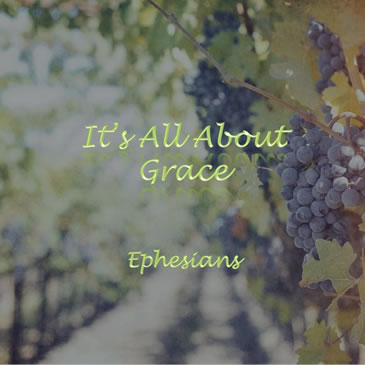 Ever wondered what’s at the heart of Christianity? Try reading Paul’s letter to the Ephesians. John Stott says Ephesians “is a marvelously concise, yet comprehensive, summary of the Christian good news and its implications. Nobody can read it without being moved to wonder and worship, and challenged to consistency of life.” Our series is called "It's All About Grace" because by God has done everything for us in Christ. Every man and woman, no matter what their background, is welcome in God's family.
Ever wondered what’s at the heart of Christianity? Try reading Paul’s letter to the Ephesians. John Stott says Ephesians “is a marvelously concise, yet comprehensive, summary of the Christian good news and its implications. Nobody can read it without being moved to wonder and worship, and challenged to consistency of life.” Our series is called "It's All About Grace" because by God has done everything for us in Christ. Every man and woman, no matter what their background, is welcome in God's family.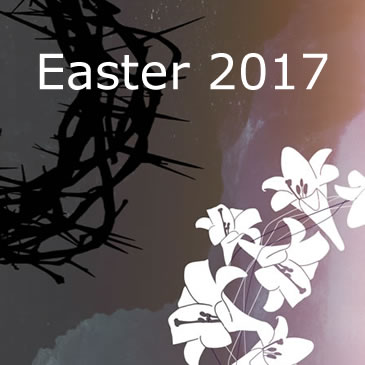
 Matthew 13 is a turning point in the gospel. There is a growing hostility to Jesus and his ministry. Increasingly he will forsake the synagogues and teach people outdoors. Parables both reveal truth but also conceal truth. The section includes the famous feeding miracles, healing and transfiguration. But it also includes the death of John the Baptist and the prediction of Jesus’ own death. Amidst this growing conflict is the disturbing challenge to be a disciple.
Matthew 13 is a turning point in the gospel. There is a growing hostility to Jesus and his ministry. Increasingly he will forsake the synagogues and teach people outdoors. Parables both reveal truth but also conceal truth. The section includes the famous feeding miracles, healing and transfiguration. But it also includes the death of John the Baptist and the prediction of Jesus’ own death. Amidst this growing conflict is the disturbing challenge to be a disciple. God's great plan for His world in sending His Son to be the Saviour was important news that needed to be announced in advance. Our series for the 2016 Christmas season, the 'Message of the Angels', focuses on those special moments when the good news of God's wonderful plan was brought to ordinary men and women by God's specially commissioned angels.
God's great plan for His world in sending His Son to be the Saviour was important news that needed to be announced in advance. Our series for the 2016 Christmas season, the 'Message of the Angels', focuses on those special moments when the good news of God's wonderful plan was brought to ordinary men and women by God's specially commissioned angels. Romans is a letter that is life-changing. Why? Because it is about the gospel. Romans helps you not only understand the gospel but also experience it. It is a letter for all people and for all cultures. It explains how God's big plan of rescuing the entire world is brought about through faith in Jesus Christ.
Romans is a letter that is life-changing. Why? Because it is about the gospel. Romans helps you not only understand the gospel but also experience it. It is a letter for all people and for all cultures. It explains how God's big plan of rescuing the entire world is brought about through faith in Jesus Christ.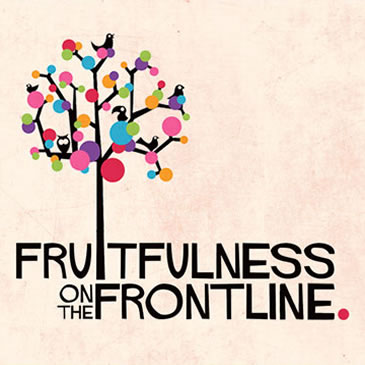 This six week sermon series is based on resources developed by Mark Greene at the London Institute of Contemporary Christianity. We thank Mark and LICC for permission to include some of their DVD clips on our web site. VIDEOS: Modeling Godly Character and also Yes I'm the Mechanic Making Good Work Ministering Grace and Love Moulding Culture Mouthpiece for Truth and Justice Messenger of the Gospel
This six week sermon series is based on resources developed by Mark Greene at the London Institute of Contemporary Christianity. We thank Mark and LICC for permission to include some of their DVD clips on our web site. VIDEOS: Modeling Godly Character and also Yes I'm the Mechanic Making Good Work Ministering Grace and Love Moulding Culture Mouthpiece for Truth and Justice Messenger of the Gospel Easter 2016
Easter 2016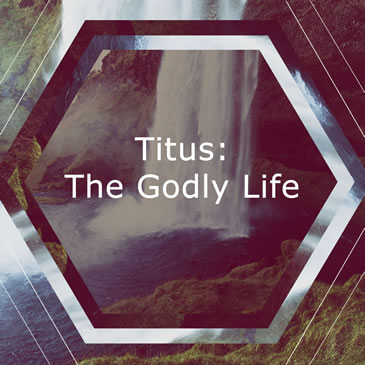 Over summer 2016 we are preaching through the New Testament letter of Titus. Titus was one of the apostle Paul’s co-workers in the early church. Chronologically we think this letter comes after the book of Acts has ended. It refers to a mission Paul and Titus conducted on the island of Crete (not mentioned in Acts) and then some subsequent problems that emerged largely due to false teaching.
Over summer 2016 we are preaching through the New Testament letter of Titus. Titus was one of the apostle Paul’s co-workers in the early church. Chronologically we think this letter comes after the book of Acts has ended. It refers to a mission Paul and Titus conducted on the island of Crete (not mentioned in Acts) and then some subsequent problems that emerged largely due to false teaching. This is a 5 part series that leads us into Christmas.
This is a 5 part series that leads us into Christmas.

To delve further, you may like to refer to "Hosea: The Passion of God", a short commentary by Tim Chester.
 There are many arguments for and against the Christian faith. But what arguments did the first Christians use to persuade people that Jesus was Lord? An intriguing and thought-provoking Sunday@6 sermon series. It begins with a service of lament which will be an opportunity for the congregation to acknowledge the struggle to believe.
There are many arguments for and against the Christian faith. But what arguments did the first Christians use to persuade people that Jesus was Lord? An intriguing and thought-provoking Sunday@6 sermon series. It begins with a service of lament which will be an opportunity for the congregation to acknowledge the struggle to believe. Towards 2020 is the name we have given to the process of exploring the future directions of St Alfred's.
Towards 2020 is the name we have given to the process of exploring the future directions of St Alfred's.
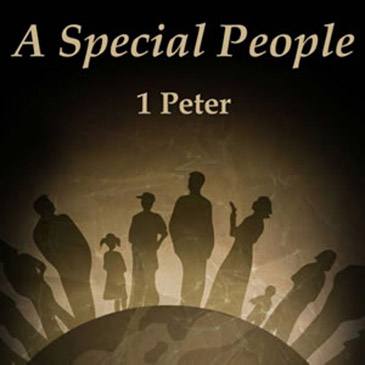
A good resource for Growth Group leaders is Teaching 1 Peter by Angus MacLeay. It is written for preachers and Bible study leaders and includes a good explanation of each passage followed by a Bible study. Most of the hard work is done for you! Paper-back. Costs less than $20 from nearby Christian bookshops.
 IML--Need to add text for series --
IML--Need to add text for series --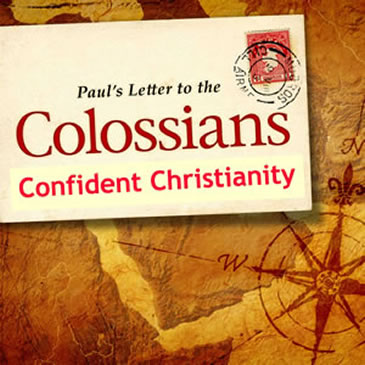
The Apostle Paul is writing to some new Christians who were living in present-day Turkey. The early church there had been disturbed by false teaching saying that Jesus is not enough for salvation. In response Paul writes about the supremacy, centrality and sufficiency of Jesus. The issues may be ancient but they are also still contemporary.
Here are three resources to help your personal or group study of Colossians:
1. Bible-study Guide - 'Confident Christianity' by Mark Meynell (Good Book Company);
2. 'The Letters to the Colossians and to Philemon' by Douglas J. Moo (The Pillar New Testament Commentary Series);
3. 'Colossians and Philemon' by N.T. Wright (Tyndale New Testament Commentaries).
Our major Old Testament preaching series in Judges is called "Faithful and Flawed" which represents the tension throughout the entire book. In some ways it is a very dark book. It begins with war and death (1:1) and ends in chaos – "in those days Israel had no king; everyone did as they saw fit" (21:25).
In between we will meet a series of leaders who are sometimes exemplars of faithfulness but more often embody the flawed human nature that bedevils us all. Throughout the troubling narrative there is an ever faithful God who continues to work with his people despite all their failings.

Trinity
In the church calendar each year we have a "Trinity Sunday." This year it was June 15 2014. Traditionally the sermon that day would be on the Trinity. We have decided this year to have a little series on the Trinity titled "The Party That Never Ends".
 1 Corinthians This is a series looking at one of the Apostle Paul’s longest letters. Corinth is in modern-day Greece and was a thriving commercial centre due to its proximity to the sea. As a church it certainly had its problems. But then what church doesn’t have problems?
1 Corinthians This is a series looking at one of the Apostle Paul’s longest letters. Corinth is in modern-day Greece and was a thriving commercial centre due to its proximity to the sea. As a church it certainly had its problems. But then what church doesn’t have problems? From 29 Dec 2013 to 16 Feb 2014 we will do a short sermon series from Luke 19-20 called “Seek and Save.”
From 29 Dec 2013 to 16 Feb 2014 we will do a short sermon series from Luke 19-20 called “Seek and Save.” Our advent preaching series this year is called “The Advent Conspiracy” and begins slightly ahead of time. This is really a movement rather than a preaching series. The aim is to help Christians keep Jesus at the centre of Advent and Christmas. The movement's message is to reject the overwhelming consumerist approach to Christmas in order to celebrate the meaning of Christ’s birth more fully. There are four founding principles: Worship Fully, Spend Less, Give More, Love All. Pastors Greg Holder, Chris Seay, Rick McKinley and others began the Advent Conspiracy in 2006 when they proposed to spend less on gifts and give more to the poor. The testimony of many is that they are discovering a new joy and happiness and a deeper faith. It has helped people slow down and experience a Christmas full of creativity, compassion and love. You can see a promotional video: [AC] 2012 Promo - Basic from Advent Conspiracy on Vimeo. And read much more at www.adventconspiracy.org. We will tailor the material to fit our setting here at St Alfred's so it won’t look like everything you see on the video or the web site. For example they have given a lot of money to one particular charity whereas we will have our own ideas on what to support. Although we are beginning the series early, the other three weeks will actually come in Advent in December. We wanted to start early to give you advance warning what this is about and to give you time to start thinking.
Our advent preaching series this year is called “The Advent Conspiracy” and begins slightly ahead of time. This is really a movement rather than a preaching series. The aim is to help Christians keep Jesus at the centre of Advent and Christmas. The movement's message is to reject the overwhelming consumerist approach to Christmas in order to celebrate the meaning of Christ’s birth more fully. There are four founding principles: Worship Fully, Spend Less, Give More, Love All. Pastors Greg Holder, Chris Seay, Rick McKinley and others began the Advent Conspiracy in 2006 when they proposed to spend less on gifts and give more to the poor. The testimony of many is that they are discovering a new joy and happiness and a deeper faith. It has helped people slow down and experience a Christmas full of creativity, compassion and love. You can see a promotional video: [AC] 2012 Promo - Basic from Advent Conspiracy on Vimeo. And read much more at www.adventconspiracy.org. We will tailor the material to fit our setting here at St Alfred's so it won’t look like everything you see on the video or the web site. For example they have given a lot of money to one particular charity whereas we will have our own ideas on what to support. Although we are beginning the series early, the other three weeks will actually come in Advent in December. We wanted to start early to give you advance warning what this is about and to give you time to start thinking. As we read the bible God challenges us to align the 'little' story of our lives in Melbourne's East with his 'big' story which spreads out from before the foundation of the world until the Lord's return and then on into eternity. What is God doing? How are we called to be a part of it? But we are not the first to face this challenge. After God's people came back from exile they neglected the work of rebuilding God's house, the temple, and simply got on with their own private lives. In 520 BC God sent the prophet Haggai to challenge their priorities and rouse them back into action. God's mission in the world was not yet completed. The temple of his dwelling was still central to his plan for his glory. Haggai called God's people to prioritise God's plan ahead of their own plans. His call goes out to us as well.
As we read the bible God challenges us to align the 'little' story of our lives in Melbourne's East with his 'big' story which spreads out from before the foundation of the world until the Lord's return and then on into eternity. What is God doing? How are we called to be a part of it? But we are not the first to face this challenge. After God's people came back from exile they neglected the work of rebuilding God's house, the temple, and simply got on with their own private lives. In 520 BC God sent the prophet Haggai to challenge their priorities and rouse them back into action. God's mission in the world was not yet completed. The temple of his dwelling was still central to his plan for his glory. Haggai called God's people to prioritise God's plan ahead of their own plans. His call goes out to us as well.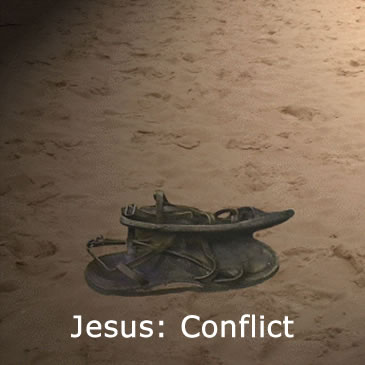
There is no doubt as you read the Gospels that Jesus is a controversial character. Even his closest friends and family are at times uncertain about who he is and what he is doing. In Matthew Chapters 11-12 we see Jesus responding to this uncertainty and opposition forthrightly. Although some people will reject him and some will plot against him nevertheless at the end of each chapter (11:25-30; 12:46-50) Jesus appeals to people to become true disciples.
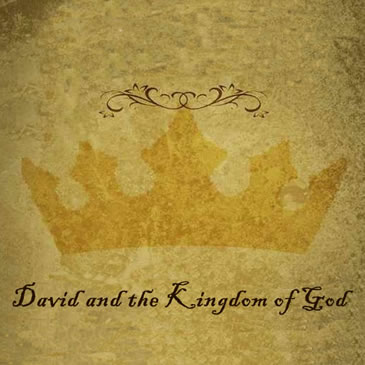
Can God Use Flawed Human Beings? Yes he can. Just read 2 Samuel. King David is no knight in shining armour and Israel is no Garden of Eden. The pages of 2 Samuel are full of murder, intrigue, jealousy, death, revenge, war, insurrection, hubris and pain. David is only Israel's second king and he is bedeviled by enemies within, enemies beyond and his own very mixed motives. How can God's kingdom be established in such a dangerous situation when not only the people but even the king is so flawed? How can God use such unlikely people to achieve his purposes? Welcome to "David and Kingdom of God" our preaching series in 2 Samuel. This will be a great series to see not only how God's big plan of redemption unfolds with the choice of David and Jerusalem but also how he continues to work through flawed human beings even today.
2 Samuel Resources For anyone preparing Bible studies or interested in understanding 2 Samuel better I recommend either of the following two paperback commentaries:
- Dale Ralph Davis - 2 Samuel: Out of Every Adversity 287 pp; written by a great preacher and scholar; study guide at back ; good solid exposition of every chapter.
- Andrew Reid - 1 and 2 Samuel: Hope for the Helpless 267 pp; great exposition and theological reflections; good on structure; covers both 1 & 2 Sam and so of necessity has to be succinct. Andrew is a former lecturer at Ridley Melbourne and is the senior minister nearby of Holy Trinity, Doncaster.


Most scholars agree that Galatians was written about 50 A.D. and is therefore among the earliest, if not the first, of the New Testament documents. The first Christians were Jewish but as the gospel spreads more and more Christians come from non-Jewish backgrounds. This creates some serious problems for the early church not least of which is do you have to be a Jew first before you can become a Christian? Although this may seem an esoteric issue to us today it raises an absolutely central question for all Christians – what is the gospel? For commentaries on Galatians see http://bestcommentaries.com/galatians. This site gives you reviews and some indication of the academic level of each commentary (ie technical, pastoral, devotional).
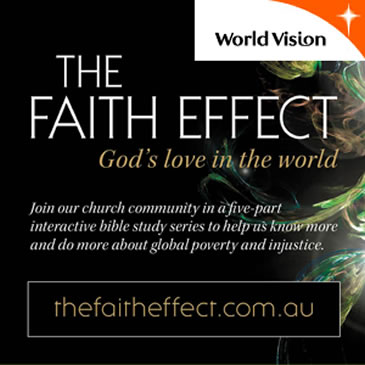
On June 17 we turn our focus to issues of global poverty and social justice. This month-long series is called "The Faith Effect."
There are also Tuesday Seminar (registration required).
The Faith Effect is an initiative of World Vision.
- June 17 On Earth As in Heaven?
- June 24 Religion Poisons Everything?
- July 1 God's Love in the World?
- July 8 What Can We Do?
- July 15 So What's Next? (evening service only)
Tuesday seminars
Join a 4 week seminar on The Faith Effect.
Tuesdays 7.30-9.30pm June 19, 26, July 3, 17, Room 2 at St Alfred's with Peter MacPherson.
Peter will be joined in the teaching by Matthew Maury, National Director, TEAR Australia.
This is open to anyone at St Alfred's. Register with Heather Mitchell (so we can get you a participant's manual – cost $5)
Growth Groups can also use this resource in their groups.
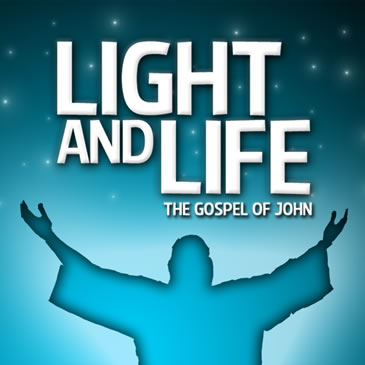 Our Term One and Two series in 2012 is on John's Gospel. It was is written so "that you may believe that Jesus is the Christ, the Son of God, and that by believing you may have life in his name" (John 20:31).
Our Term One and Two series in 2012 is on John's Gospel. It was is written so "that you may believe that Jesus is the Christ, the Son of God, and that by believing you may have life in his name" (John 20:31).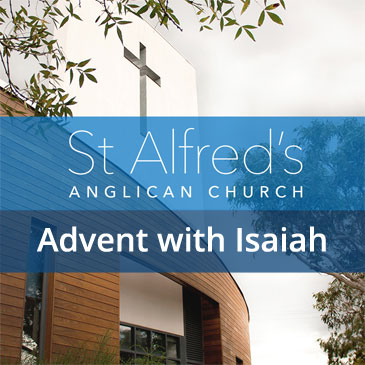
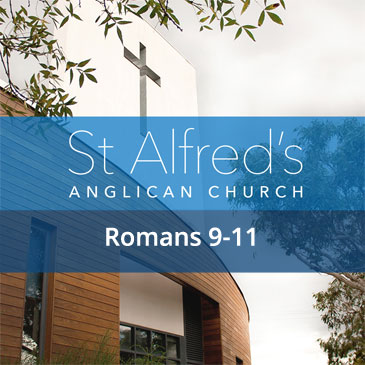
Romans 9-11 has been a battleground over the years for a number of reasons.
1) How does it fit in to the structure of Romans? Some think of it as an “excursus” or detour (ie not important to the main argument) while others see it as the very centre of Romans.
2) It raises complex theological issues like predestination and election over which whole schools of thought have differed (eg Calvinists v Arminians).
3) It forces us to think about the place of Israel in God’s plan of salvation and what Paul means when he looks to the future and sees that “the full number of Gentiles has come in” and “all Israel will be saved” (11:25-26).
Romans 9-11 are challenging chapters of Scripture. Nevertheless what does come through clearly is that God is a God of mercy and compassion. In his compassion he has not only created and used Israel to make himself known but he has now sent the Messiah, the Lord Jesus, to make salvation possible for all people. This is the gospel that Paul has been preaching and which we continue to preach to this very day. The series will involve four expository sermons (Oct 23 & 30, Nov 13 & 20) punctuated by a stand-alone topical sermon on “The Thorny Question of Predestination” (Nov 6).
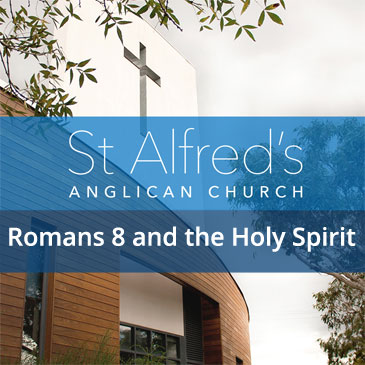
For three Sunday services beginning Aug 28th 2011 the sermons will look at Rom 8 and particularly what it says about the work of the Holy Spirit.
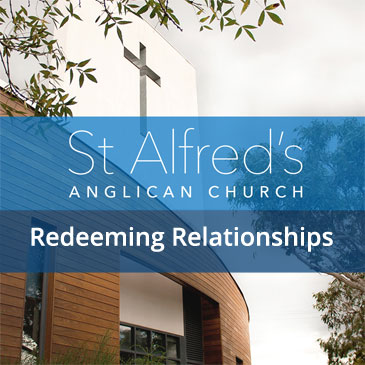

Life can be a puzzle at times and being a Christian, rather than simplifying things, sometimes makes it even more complex. It is important therefore to be sure about who Jesus is and what he teaches.
We will get a renewed sense of this as we read and ponder on chapters 9 & 10 of Mark's Gospel. If you are looking for an easy-to-read commentary on Mark we recommend "The Servant King: Reading Mark Today" by Paul Barnett (available from leading Christian book shops).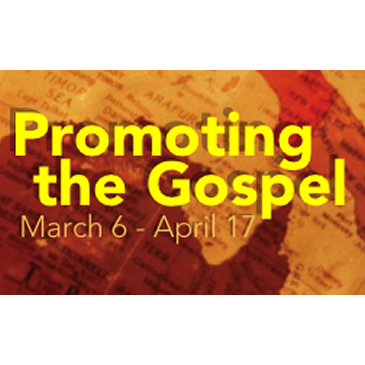
This Sunday we begin a series called “Promoting the Gospel.” The gospel about Jesus that we wish to promote is “good news” for everyone and for our country but the spiritual climate of Australia is mixed to say the least. Our reaction may be to withdraw from the public sphere and limit mission to personal interactions. I have no problem with personal evangelism – each person matters. But we must also have an eye on the wider issues that are affecting the spiritual dynamics of our country and state. Please do use whatever avenues you have to ensure a Christian perspective is communicated intelligently and graciously.
Peter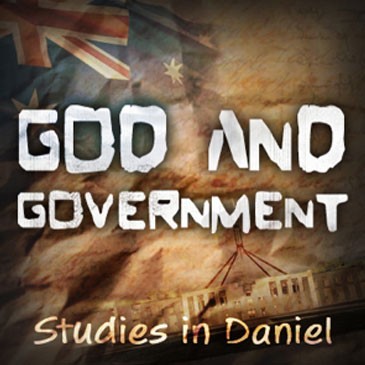
Daniel: God and Government The setting of Daniel is the sixth century B.C. when the Jews are in exile in Babylon. You might wonder what such distant events might have to say to us today. First of all the book of Daniel will help us reflect on God’s rule in our world. It raises issues such as persecution, evil, suffering, power politics and forces us to think about how we are to live as Christians in a hostile world. Sec-ondly Daniel and his friends are models of faithful, wise and courageous men who offer us insights on how we might respond to the temptations and trials that we face. Thirdly, Daniel provides some of the background thinking to what Jesus has to say about the kingdom of God, his identity as “the Son of Man” and the end of the world. So there are many good reasons for reading Daniel. We will do chapters 1-6 in the coming weeks and look at chapters 7-12 over summer.

Often the divisions within the Christian church distract us from what I consider is our main fight. Our main fight is not with each other but with a largely unbelieving world. Although the census data might suggest that the majority of Australians have a belief in God and that many would have a vaguely Christian belief, committed Christians are still a small minority in our country.
Over the month of August we have planned a number of activities that you can invite not-as-yet Christians to and engage in discussion. I encourage you to “pray and invite”.

Join us each Sunday as we read through the New Testament letter to the Hebrews. Jesus: greater than any human person or angelic being that has ever been or will ever be! The letter to the Hebrews asserts and explains this so that Christians in every age will be encouraged to hold fast to Christ, and stand up as Christ's own in the world. The letter stands as a stellar example of creative and faithful theological reflection on the meaning of the Old Testament as applied to the experience of New Testament believers. It is a written-down sermon full of passion for Jesus and encouragement for his followers.


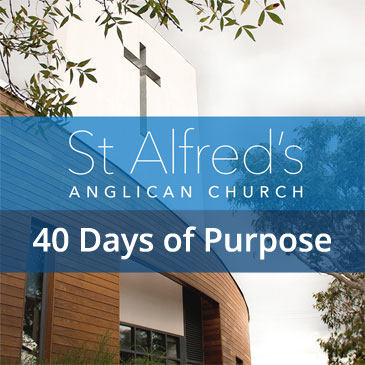
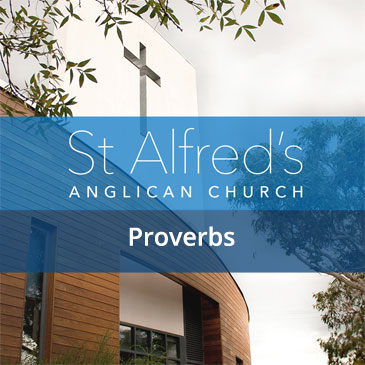


What is life and church all about? What does God want us to do with our individual lives and as a church? A five-week series looking at five key God-given purposes.
Join us for this foundational series which will help you live a purpose-filled,satisfying and God-honouring life.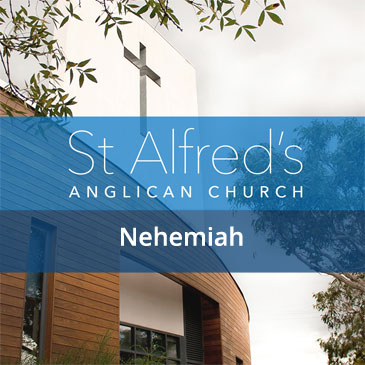

The New Testament Book of James
